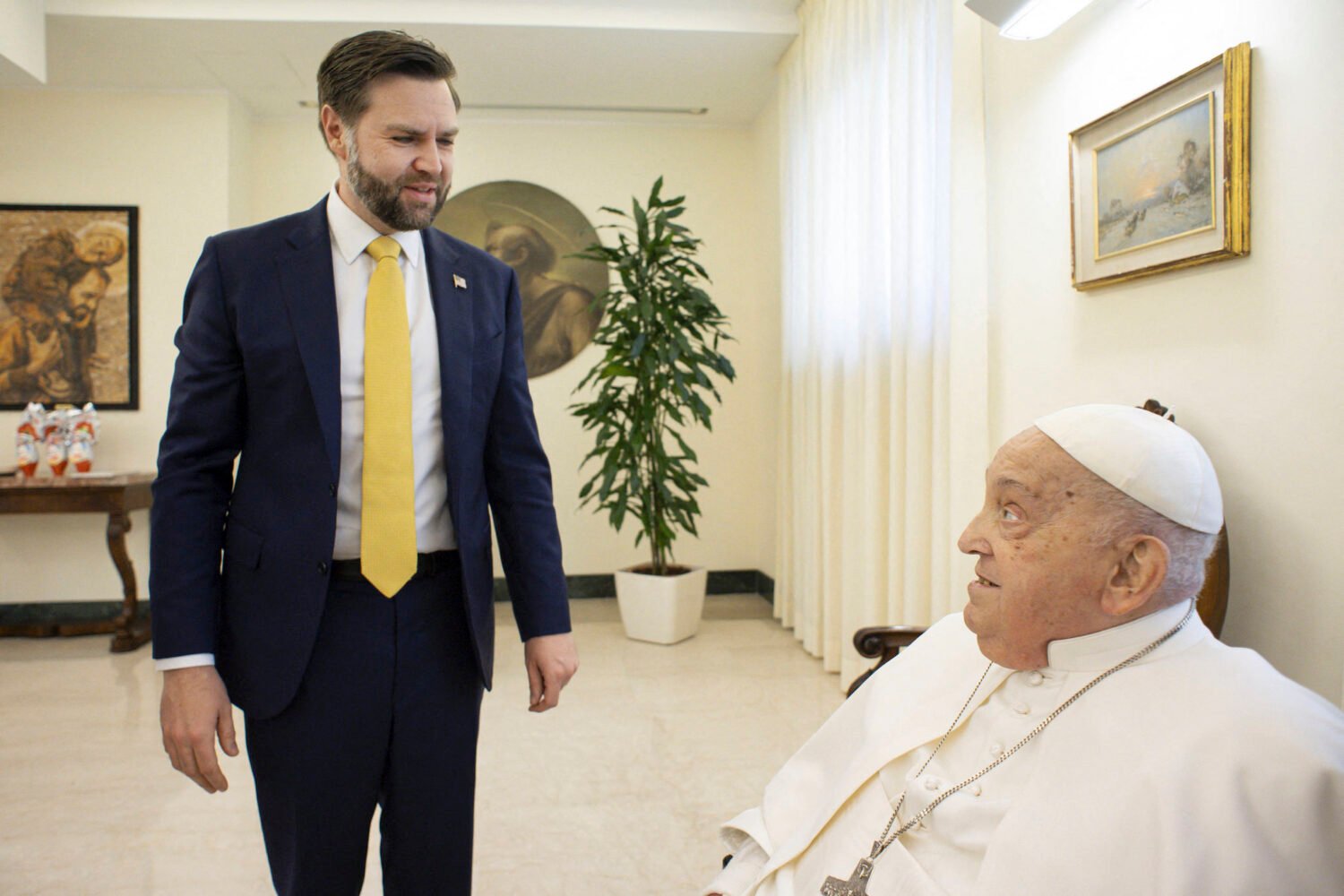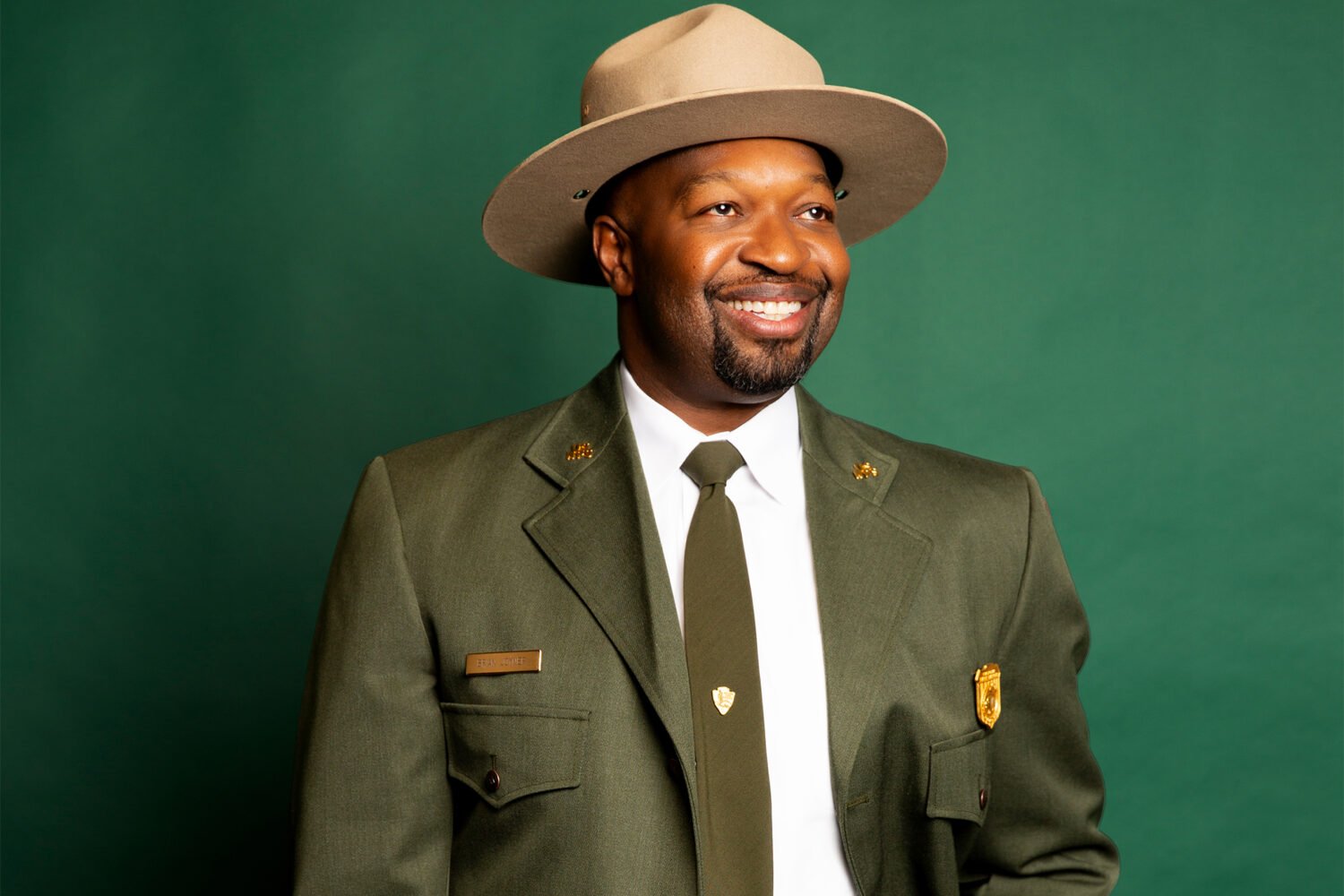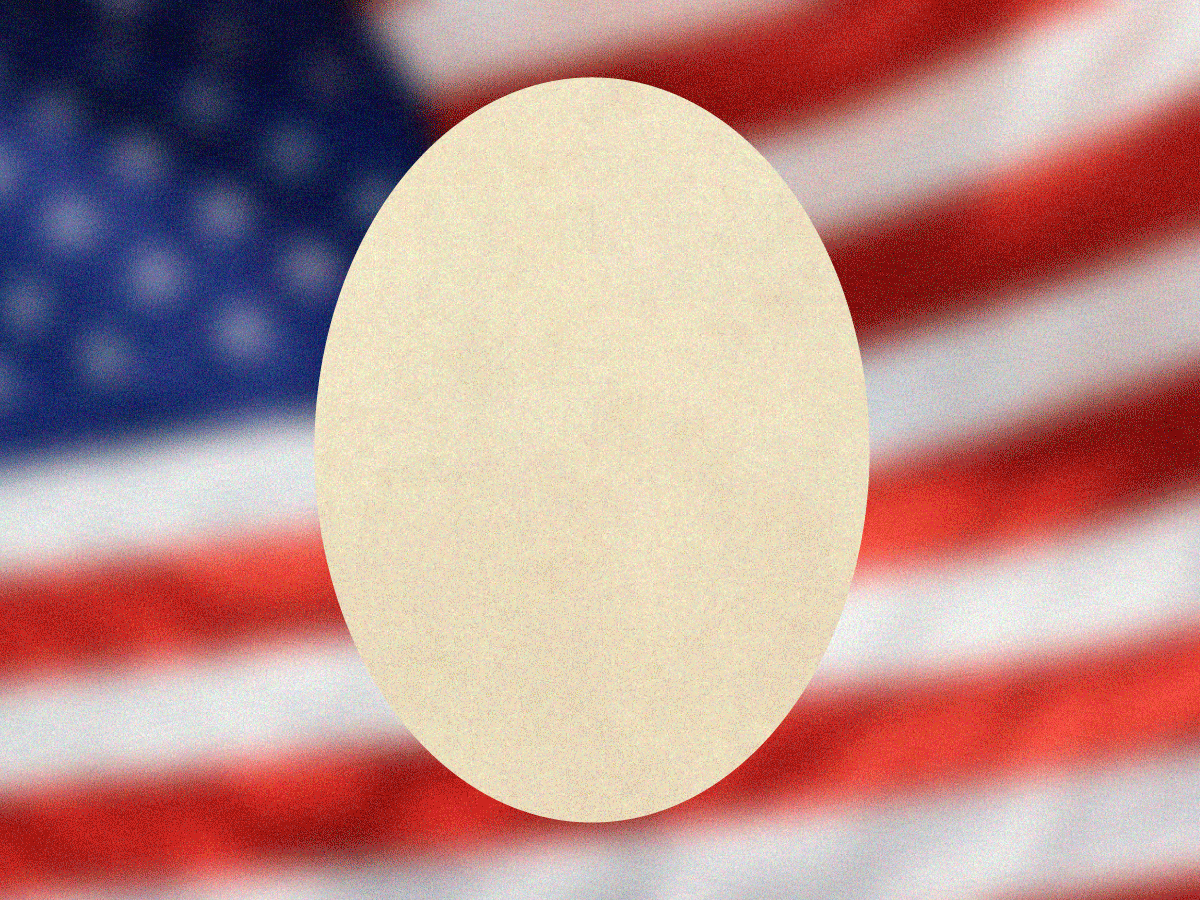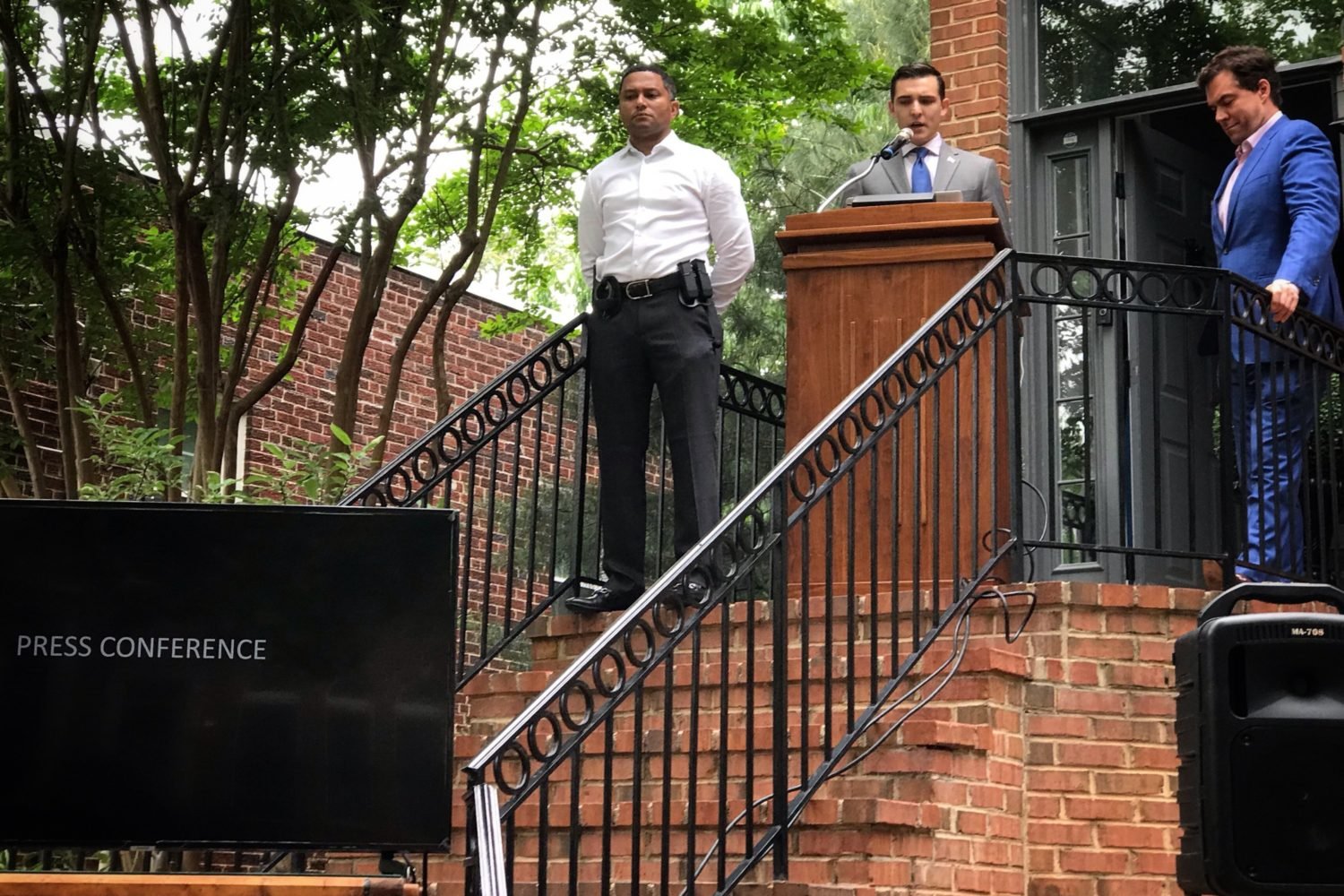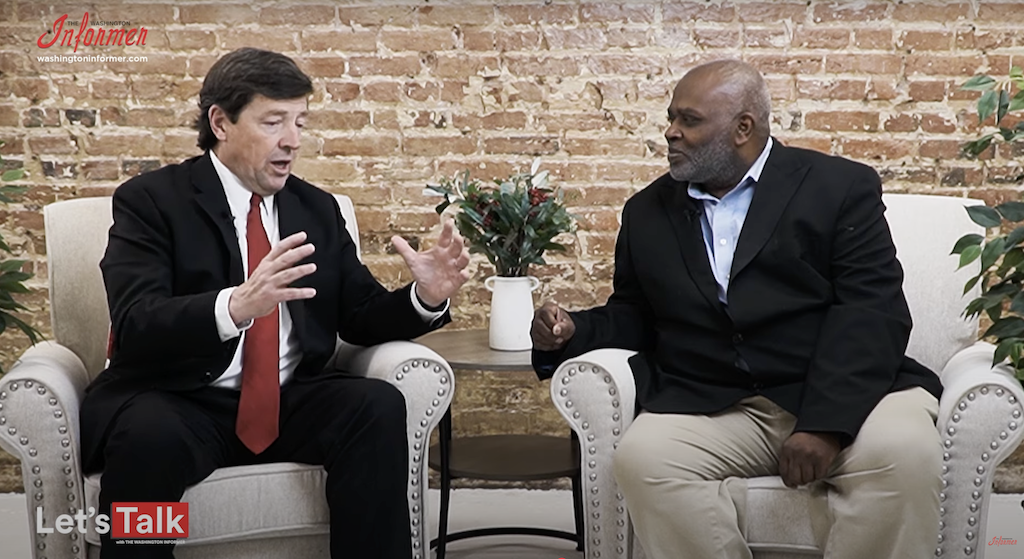The first thing you need to know is that no one has a good reason for joining Mensa. Pretty much anyone who tries to join a high-IQ society does so, ultimately, because he or she is an insufferable jerk. Maybe years of bullying for being a mathlete or wearing argyle sweaters well into junior high has given the person an inferiority complex, or maybe he just wants a bumper sticker that lets everyone on I-95 know he’s a genius. Either way, it’s never for noble reasons, however hard someone might pretend otherwise.
My reasons for joining were as jerky as anyone’s. I may have couched them by pretending it was all in the name of a good magazine story—I would infiltrate this society of geniuses and take readers inside their strange little world—but if I’m being honest, it was also about having something to prove. I wanted a Mensa mug, and a pencil I could whip out during interviews to illustrate how bright I was. I wanted a membership card I could accidentally flash while paying for my In Touch and Us Weekly at CVS. Most of all, I wanted affirmation—the kind that can make up for years of being rejected by elite universities and elite jobs and not-so-elite boyfriends.
Who’s the dumb one now?
The answer, obviously, is me, because now I have to write about it, and my experiences in the Metropolitan Washington chapter of Mensa were the weirdest, most uncomfortable I’ve ever had, and that’s including the time I posed for the cover of a pre-Fifty Shades of Grey fantasy S&M novel in 2001 and even the time I was an intern at Vogue.
During my year as a Mensa member, I met a man sporting blond ringlets, lipstick, and a full beard; a knight in a suit of armor with chain mail he made me touch; a man I’m fairly sure knows all the nuclear codes; and a borderline racist. I lost at cryptograms; I managed to get out of attending a hot-tub party and chocolate “orgy”; and I left with the nagging suspicion that Mensa is where brilliant but very socially awkward people go to get laid. Get laid or play board games. Whichever they’re in the mood for.
These days, Mensa—a society for people whose IQs are in the 98th percentile (roughly 132 and over)—is an odd amalgam of Special Interest Groups (SIGs), food-and-drink-oriented meetups, and regional websites that look as if they were coded in the earliest days of the internet.
But when it was founded in 1946 by scientist Lancelot Ware and lawyer Roland Berrill, the pair hoped it would become a United Nations-like organization that would save the world—or at least foster intelligent debate. Even in those early days, though, the jerky aspect was there, as Ware’s obituary in the Economist attests. Berrill, an Australian expat living in England, had applied to study at Oxford University but had been rejected and had developed an unhealthy obsession with the institution. After serving as a chemist during World War II, Ware was a graduate student at Oxford. The two happened to strike up a conversation while sharing a train carriage.
“By the end of the journey, the two men, both lawyers, had formed a tentative interest in each other,” the article said. “They discussed cleverness. The Australian [Berrill] thought it could be measured by studying bumps in the head. Mr. Ware was a fan of intelligence tests and offered to give his new companion a test. The Australian did brilliantly well and was immensely pleased; no one had said he was clever before. Would it not be a splendid idea to bring together an aristocracy of gifted people to attend to the problems of the world?”
Thus was Mensa founded, and that summary is as telling as any: An eccentric man with low self-esteem finds out he’s good at puzzles, and a lifetime of grandiosity ensues. Berrill died in 1961, but Ware, after leaving the group for a short time, resumed a leadership position in the organization. “I found that people of high intelligence were people I had an easy rapport with,” he was quoted as saying in his New York Times obit, which concludes: “Mensa was still an organization in search of a purpose, and to some degree remains so today.”
I hit upon the idea of joining Mensa while reading the Wikipedia page of the actress Glenne Headly. You may know her from ER or Monk or Dirty Rotten Scoundrels, but for me she’ll always be Tess Trueheart from the 1990 movie Dick Tracy. (She was also married to John Malkovich for a time.) Headly was once a Mensa member.
About a year ago, that factoid piqued my interest/ego, and soon I was on the American Mensa web page, paying $18 to take an online home test. (It was 110 degrees outside and I was bored.) The 40-minute quiz—which has no official standing other than to tell you you’re probably not smart enough to be a Mensan without having to schlep to the suburbs to take a real test—includes math, problem solving, and a question about what relation Jane is to Anne if Jane is Anne’s mother’s brother’s daughter’s cousin’s aunt. Almost an hour of brain-scratching later, I discovered I’d scored 76 out of 80 and would most likely qualify for admission to a society of geniuses. It was by no means the worst $18 I’d spent online.
Here’s another jerky thing about Mensa: It’s free to take the official proctored test if you’re a journalist. (It costs lesser mortals $40 in addition to three hours of their otherwise perfectly good weekend.) Now, most journalists are egomaniacs with inferiority complexes about their paltry salaries who love nothing more than to be told they’re geniuses. We also have the ability to write about it and spread the gospel of Mensa all over our various publications. Google “Mensa” and you’ll find countless first-person accounts about taking the test. (The best part is when you scroll to the end to find out whether that person passed and you picture him wrestling with either false modesty or falsely cheerful nonchalance.)
I’ll spare you most of the details about the test. The highlights: It was in a public library in Odenton, Maryland, at 9 am on a Saturday, and the group of test takers was the most diverse group of people I’ve ever seen in one room. The proctor wore a Hawaiian shirt and told us he was sure we’d all pass. He handed out Mensa pencils (I was thrilled when we got to keep them) and informed us he was a member of a SIG called BLAM, which stands for Blazing, Lightly Armed Mensans. Once a month, he goes to a shooting range in Virginia with fellow Mensans and then retires to a nearby Denny’s, where he and his friends “eat until we’re sick.”
Around a month later, I got a letter informing me that I qualified for admission. As long as I was happy to shell out the $70 annual membership fee, I was in. I asked my editor if I could expense it—you know, for the story. He looked at me with a distinctly suspicious expression. “We’ll pay for the first year,” he said, “but after that it’s on you.”
Washington is filled with brainiacs. Where else can you find so many large institutions dedicated to people sitting around and thinking? Between NIH, NSA, the CIA, and other acronymic organizations, you can’t swing a dead cat without hitting a PhD. Yet out of the 120,000 people in the area who statistically qualify for Mensa membership (the top 2 percent here), only about 2,000 are members, meaning the other 118,000 have better things to do. As a Washington Post story put it: “Mensa is not just a society for highly intelligent people; it is a society for people who want to belong to a society that tells them they are highly intelligent.”
And yet. Like most people who were once teenagers, I’ve always struggled with feeling like an outsider. I wrote poems in middle school based on Greek mythology—and actually showed them to people. I played the Pink Panther theme on clarinet in my school’s talent contest while everyone else was singing Spice Girls covers. I once tried to learn the entirety of “The Rime of the Ancient Mariner” by heart because I like a challenge and I (mistakenly) thought it would be a neat party trick. I’m guarded about my personal space and was enthralled when I learned that at major gatherings Mensans wear “hug dots,” stickers that communicate how comfortable they are with being touched by strangers. Though I was alarmed by the eccentricity of the Capital M, the newsletter for members of Metropolitan Washington Mensa, I also wondered if I might find a place where I didn’t habitually feel like a freak.
The local chapter includes a special-interest group for nudists, which didn’t appeal to me, and a group for foodies called Gourmensans. Each month, there’s a Salon of Majestic Enlightenment, in which philosophers and aesthetes get together to debate life’s greater meaning at the Olive Garden. There’s usually a discussion about the paranormal organized by the parapsychology SIG and a potluck for new members at someone’s house.
I didn’t go to any of these. Instead, I signed up for the crown jewel—the 2012 regional gathering at the Hyatt near Dulles Airport. For three days each year, about 250 local Mensans get together in conference rooms in Northern Virginia and party. You can tell without even attending that they party, because the event has a theme—2012’s was the Renaissance period—and there’s karaoke, and even though everyone lives in Washington, most people book hotel rooms. The schedule included a hot-tub-and-pool party on Friday night, a Renaissance Man/Comely Wench contest on Saturday, and an 11 pm lecture on “potions, lotions, and notions designed to add spice to your love life,” titled “M-passioned M’s.”
When I arrived, the air in the Hyatt was thick with promise, from the wine gathering beads of condensation in coolers to the frilly red ribbon tied around my schedule, which someone had rolled into a scroll as if it were the Magna Carta. If you’ve ever seen the episode of HBO’s Real Sex in which the filmmakers go to a swingers’ convention (i.e., every episode of HBO’s Real Sex), it was like that, only with costumes instead of nudity.
I got there late on Saturday afternoon, when everyone had already made friends at the previous night’s hot-tub party, which left me feeling like the kid in middle school who arrives midway through the semester, when all the good desks are taken, and everyone makes fun of his haircut. I’d missed the one event I might actually have had a fighting chance at—competitive sudoku—so I walked through the main recreation room, where the smell of hazelnut coffee wafted through the air and people looked up at me in a faintly suspicious way, and settled down in the games room, sitting at an empty table and picking up a pen to fill in an abandoned number puzzle. It was one of the loneliest moments of my life.
About a half dozen people were playing cryptograms across the room, and just as I was starting to hate myself for being so awkward that I can’t even make friends at a Mensa convention, one of them came over and invited me to join in. I was grateful enough that I didn’t even care when I lost every game. (Cryptograms are hard, and it was my first time and I was playing with geniuses.) I made jokes about how dumb I was and no one laughed, because they were all thinking the same thing. After a few rounds, the group dispersed and I was alone again. I went back to the main room and poured myself some hazelnut coffee, which tasted like despair.
In the Rockbridge Room across the hall, a research professor from the Institute for Applied Space Research at George Washington University named Joe Pelton was giving a lecture on megacities, which sounded interesting, or at least more interesting than “Earning Airline Miles (for the Obsessive Compulsive),” which was going on next door. The air conditioning hummed, and the chairs were those ubiquitous hotel-wedding ones with brass legs and red faux-velvet seats.
Pelton attempted to deliver his lecture about megacities and the impact of overpopulation on the environment but kept getting interrupted by a woman in the front row. We know, Pelton said, that riding a bicycle is far better for the environment than driving a car and eating chicken is better than eating red meat. “Vegetarianism,” the woman said, managing to speak both loudly and under her breath. “Being a vegetarian is the best. Being a vegetarian is the best. Vegetarianism.”
The lecture was insightful and revealed that if population trends remain the same, the world will have 48 billion people by 2400. I thought about asking a question and raised my hand slightly, then looked around and thought better of it.
At the end of the lecture, a man approached to ask me what my question was. “I was looking forward to hearing what you had to say,” he said, and seemed genuine. I asked him how long he’d been in Mensa; he told me 45 years and pointed to a Mensa pin on his lapel. “Gosh,” I said. “That’s a long time. Has it changed?” He paused and his face darkened. “Oh, yes,” he said. “It used to be for everyone. Now it’s run by the rich and the well connected—the people who can afford to have free time. And it’s been ruined by political correctness. There are special-interest groups for Asians and Hispanics. I wanted to start a SIG for whites only, but corporate Mensa wouldn’t let me.”
I retreated to the hotel bar and happily paid for a glass of wine even though there was free alcohol back in Geniusland. I had a profound feeling of unease, which was amplified when a man clanked over wearing a suit of armor and kissed my hand. He had a round face and a mustache. The polite thing to do seemed to be to ask about his armor, so I did, and he told me he’d had it custom-made in California and that it weighed more than 80 pounds. A sword went with it, but he’d left it in his room because people always wanted to touch it and there were kids around and it was a real sword. The obvious response would have been “That’s what she said,” but I restrained myself.
Costume-wearing Mensans proliferated, and soon we were joined by a fiftysomething woman in what I could only assume was a comely-wench outfit, with flared velvet sleeves and a pink bodice. Everyone was excited about the costume contest and the dinner at 6:30 and the karaoke, which followed the Renaissance talent contest. Everything was “royal.” It all reminded me of reading about the first-ever Mensa gathering in November 1946, hosted by Ware and Berrill, where a female member dressed in robes acted as the “Corps D’Esprit Queen,” and the five other assembled members drank wine. The feel of this weekend—the website for which announced “a royal game room, a royal banquet, and two royal pool parties”—was distinctly grander than the reality, which was essentially a lot of people in Renaissance outfits and slogan tees hanging out in a chilly conference room near the airport.
Of the 2,000 or so Mensans in Washington, only about 250 were dedicated enough to have paid the $79 fee (plus hotel costs) and gathered here today. This was the crème de la crème of high-IQ society members. It was a depressing thought, and I bade the knight and wench farewell and drove back to DC as fast as I could, pausing only to ponder why the experience had left me so uncomfortable. Once again, I was an outsider, only this time the problem wasn’t that I was a poetry-writing, clarinet-playing oddball but that for once I actually wasn’t odd enough.
I attended one more Mensa meetup, and it was in my apartment building. A well-meaning new Mensan who lives a few floors down had volunteered to host the monthly new-member get-together in our community room, which meant that, as a semi-legitimate reporter, the only way I could not go would be if I had two broken legs and smallpox.
The crowd was smaller this time. The guy in my building told me my bangs made me look like the actress Zooey Deschanel, which was nice. But then an older married couple came over and told us that they’d met in Mensa and that we would make a great couple, too. I told them I was already married, and then we stood around in awkward silence. To distract myself, I focused on the gorgeous, curly blond ringlets of the person sitting in front of me and was startled when the person turned around and had a full beard (and was a man).
I had the same uneasy feeling—of being an outlier, a misfit among misfits. I made my excuses and went home, which this time took less than 30 seconds.
Given the hazelnut coffee, the puzzles, and the sexual undercurrent at both Mensa events I attended, it may not come as a surprise that I let my membership lapse earlier this year. Leaving Mensa isn’t all that hard (unlike, say, Scientology). I get e-mails and letters every now and again, which range from plaintive to jocular. (One hints that I can lose weight by maintaining my membership, which feels both untrue and insulting.) There seems to be a sense of anxiety proliferating among members nationwide and their leaders at the Texas headquarters. The newsletter expresses pleas to encourage friends to take the test because Metropolitan Washington Mensa regularly loses —and regains—its position as the second-largest chapter nationwide (after New York, naturally) to Chicago. If it weren’t for all the genius toddlers continually qualifying for Mensa and being written up in their local newspapers, it’s unlikely you’d hear about the organization at all.
Will Mensa survive in an era when congregating with like-minded people is a simple as clicking a mouse? Maybe. For hardcore members, and not just people like me who want a coffee mug, the human interaction is key. I asked American Mensa executive director Pamela Donahoo why she thinks people are drawn to it.
“We find people join just to join, because their third-grade teacher said they would never amount to anything,” she said. “They need some sort of validation, and then they realize all of a sudden that there’s also this group of people in Mensa who are really fun. So why people join and why people stay are very different reasons.”
Donahoo knows there will always be people like me, who join out of curiosity or because they want to put the Mensa magazine on their coffee table. “That’s a perfectly good reason, and if that’s all you want and it helps to make you feel good, then great,” she says. “But if you can get something additional out of it, that’s good, too. We aim to challenge and engage learners at any age and welcome them to an organization that really recognizes and celebrates their giftedness.”
In my case, playing cryptograms with geniuses made me feel like the dumbest person in the room. But at least I have my pencil, my mug, and my (lapsed) membership card for consolation, as well as a newfound understanding of carbon reduction in cities. As a popular Mensa T-shirt says, talk nerdy to me.
This article appears in the December 2013 issue of Washingtonian.


